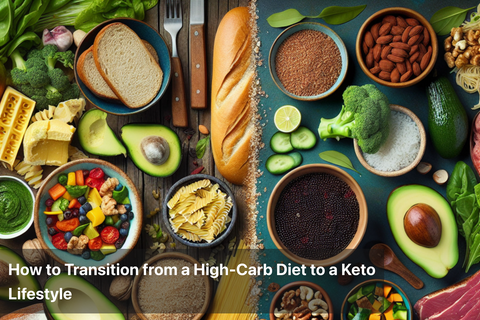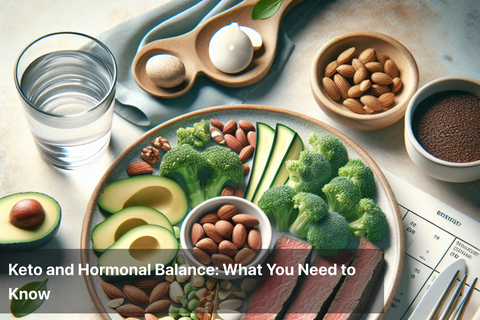
How Keto Impacts Your Gut Health: Exploring the Connection
Gut health plays a central role in overall well-being, influencing everything from immunity and digestion to mental clarity and hormonal balance. A healthy gut is populated with trillions of beneficial bacteria that support nutrient absorption, reduce inflammation, and protect against harmful microbes. Diet is one of the most powerful factors in shaping the gut microbiome, and the ketogenic diet—with its unique macronutrient composition—can have a profound impact on digestive health.
The keto diet, rich in fats, moderate in protein, and very low in carbohydrates, changes how the digestive system operates. While it supports metabolic health, weight loss, and stable energy, it also influences the diversity and function of gut bacteria. Understanding the link between keto and gut health can help optimize both digestion and long-term wellness.

How the Gut Microbiome Works
The gut microbiome is a complex community of bacteria, fungi, and other microorganisms living primarily in the large intestine. These microbes play essential roles in:
Breaking down fiber and other nutrients
Producing short-chain fatty acids (SCFAs) like butyrate, which nourish gut lining
Synthesizing certain vitamins like B12 and K2
Supporting immune response
Communicating with the brain through the gut-brain axis
A diverse and balanced microbiome promotes digestive efficiency, lowers inflammation, and reduces the risk of conditions such as irritable bowel syndrome (IBS), leaky gut, and autoimmune disorders.
How the Keto Diet Affects Gut Health
The ketogenic diet significantly alters the food supply available to gut bacteria, primarily by reducing carbohydrate intake, including sources of prebiotic fibers such as whole grains, legumes, and some fruits. These changes can both positively and negatively impact the gut microbiome, depending on how the diet is implemented.
Positive Impacts:
Reduced Gut Inflammation:
The keto diet’s anti-inflammatory properties can reduce symptoms in people with IBS, Crohn’s disease, and other inflammatory gut conditions. Lower sugar intake also reduces pathogenic bacterial overgrowth.Improved Blood Sugar Regulation:
Stable blood sugar helps maintain gut barrier integrity and prevents glycation-related damage to gut tissues.Increased Production of Ketones:
Ketones like beta-hydroxybutyrate (BHB) have been shown to have anti-inflammatory effects in the gut, supporting healing and regeneration of the gut lining.Reduction in Harmful Bacteria:
Diets high in refined carbs and sugars promote harmful microbes like Candida and Clostridium. Reducing these fuels limits their overgrowth.
Potential Downsides:
Lower Fiber Intake:
Many high-fiber foods are also high in carbs, and eliminating them can reduce intake of prebiotics—the food that feeds beneficial bacteria. This may reduce microbial diversity over time if not compensated with low-carb fiber sources.Constipation:
Reduced fiber and hydration can lead to slower bowel movements, especially in the early stages of keto.Reduced SCFA Production:
Fewer fermentable fibers may decrease the production of short-chain fatty acids like butyrate, which are vital for gut health and inflammation control.
Common Digestive Symptoms on Keto
Some people may experience digestive discomfort during the transition to keto or if their diet lacks diversity. Common symptoms include:
Bloating or gas
Constipation
Diarrhea
Indigestion
Changes in stool consistency
Cramping or abdominal discomfort
These symptoms often result from rapid dietary changes, a sudden drop in fiber, or an imbalance in gut flora. Addressing these issues through proper food choices and hydration can restore digestive balance.
Supporting Gut Health on a Keto Diet
Maintaining a healthy gut while on keto is absolutely possible with a mindful approach. The goal is to include gut-friendly, low-carb foods that promote microbial diversity and digestive efficiency.
1. Include Low-Carb, High-Fiber Vegetables
These are rich in prebiotics and support digestion without spiking blood sugar:
Vegetables |
Benefits |
|---|---|
Spinach |
High in magnesium and antioxidants |
Broccoli |
Rich in fiber and supports detoxification |
Cauliflower |
Promotes fullness and gut-friendly fermentation |
Asparagus |
Contains inulin, a natural prebiotic |
Zucchini |
Gentle on the stomach and easy to digest |
Aim for 2–4 servings of non-starchy vegetables per day, cooked or raw, to maintain fiber intake.
2. Eat Fermented Foods
Fermented foods contain probiotics, which introduce beneficial bacteria into the gut. Keto-friendly fermented options include:
Homemade curd or full-fat Greek yogurt (unsweetened)
Sauerkraut
Kimchi (low-sugar versions)
Pickles (fermented in brine, not vinegar)
Coconut milk kefir
These help restore microbial diversity and support digestion, especially after illness or antibiotic use.
3. Stay Hydrated and Add Electrolytes
Proper hydration supports smooth digestion and bowel regularity. Drink at least 2–3 liters of water daily and include:
Pink salt or rock salt (sodium)
Avocados and spinach (potassium)
Nuts and seeds (magnesium)
Bone broth is also excellent for gut lining support and hydration.
4. Consider Targeted Supplements
For individuals needing additional support:
Psyllium husk: Natural fiber supplement for regularity
Digestive enzymes: Help break down fats and proteins efficiently
Probiotic capsules: High-quality supplements to restore good bacteria
L-glutamine: An amino acid that supports gut lining repair
Always consult a healthcare provider before adding new supplements to your routine.

Sample Gut-Friendly Keto Meal Plan
Meal |
What to Eat |
|---|---|
Breakfast |
Greek yogurt with chia seeds and Lofoods keto seed mix |
Lunch |
Grilled chicken with sautéed spinach, garlic, and cauliflower rice |
Snack |
Lofoods keto namkeen or curd with a pinch of flaxseed |
Dinner |
Paneer stir-fry with zucchini, ginger, and fermented pickle on the side |
Summary
The ketogenic diet can positively influence gut health by reducing inflammation, stabilizing blood sugar, and eliminating processed foods. However, it may also limit fiber intake and beneficial plant compounds if not approached thoughtfully. To maintain a thriving gut microbiome on keto, it’s important to include fiber-rich vegetables, fermented foods, and low-carb staples that support digestion.
With the right strategy and gut-friendly products from Lofoods, the ketogenic lifestyle can support both metabolic and digestive health—making you feel lighter, clearer, and more energized from the inside out.
This Blog post is an initiative by Lo! Foods, to provide accurate and Nutritionist / Doctor approved information related to Health. Lo! Foods is India's leading brand for Everyday Functional Foods. Foods designed for specific Health conditions or Needs. Lo! Foods also runs India's largest range of Low Carb Healthy Cloud Kitchens, under the brand names of Lo!, ProteinChef, ATH (All Things Healthy) and DiabeSmart.













Leave a comment
Your email address will not be published.